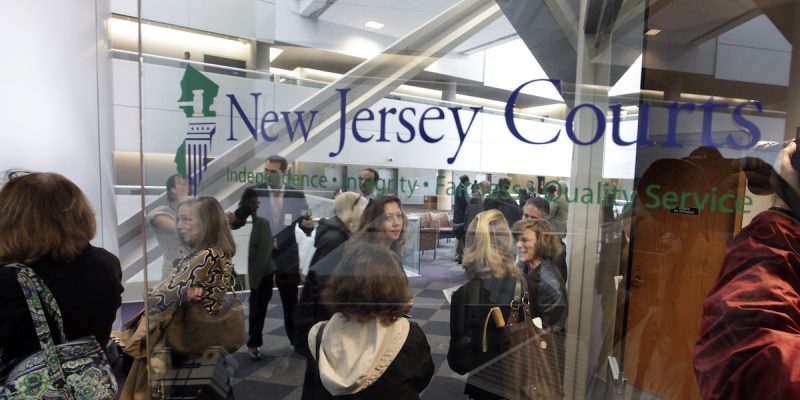Three US states have alternative court systems for people convicted of financial crimes who also suffer from gambling-related behavioral pathologies. The idea is starting to catch on as two more could soon join them.
Legislators in both New Jersey and Washington have submitted bills that would create similar justice system paths in those states for people who struggle with problem gambling. The notion behind the idea is universal regardless of the jurisdiction; helping people who need problem gambling treatment obtain that assistance while also saving the resources of the traditional justice system for other matters.
New Jersey and Washington bills would establish diversion courts
In Ohio, Nevada, and New York, some people convicted of certain financial crimes related to potential issues with problem gambling go from the traditional justice system to gambling treatment diversion courts. As a result, such people undergo mandatory and court-monitored treatment for gambling-related behavioral pathologies instead of being incarcerated.
Similar frameworks could emerge in New Jersey and Washington if lawmakers can rally enough support. In New Jersey, Sen. Nicholas P. Scutari sponsors S2272 while in Washington, Rep. Chris Stearns is the lead sponsor of HB2055.
Stears has alluded to his motivation for filing the bill in Washington.
Today I had the opportunity to testify on my bill to create a new Gambling Treatment Diversion Court in Washington. The Court would help people who commit financial crimes b/c of their gambling addiction get into treatment instead of going to prison upon conviction.#recovery pic.twitter.com/uha2qe8akS
— Chris Stearns (@chrisstearns47) January 25, 2024
As Stearns explained, the notion of the change is to divert people from incarceration for these non-violent crimes. That may not only save such people from recidivism but also represent fiscal savings for the states as well.
Diversion courts can help states stay within budgets
As Alex Weldon of Bonus.com points out, incarcerating people is a burdensome cost for state governments. New Jersey has estimated that in 2024, the price tag for each person in state custody averages out to $66,000. That’s besides the cost of the legal proceedings leading up to and perhaps during each person’s incarceration period.
Weldon reports that one of the people who managed Nevada’s diversion court through 2020, Judge Cheryl Moss, estimates that a diversion court in New Jersey would equate to keeping 50 people out of the state’s penitentiary system each year. Should New Jersey implement the changes, that would equate to savings in the millions of dollars over many years.
Those savings may be a strong selling point for the legislators in New Jersey and Washington trying to convince their colleagues of the merit of the plans. How likely they are to do so is currently unclear.
Washington HB2055 is on the agenda for an executive session in the House Committee on Civil Rights & Judiciary on Jan. 30. New Jersey S2272 is in the Senate Judiciary Committee but to date does not appear on a hearing agenda.
More information should be forthcoming soon about the chances for these bills to become law. If they do, people who struggle with problem gambling in both states could find better alternatives to incarceration when facing legal penalties.








